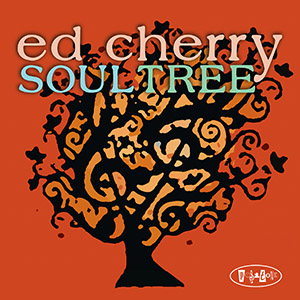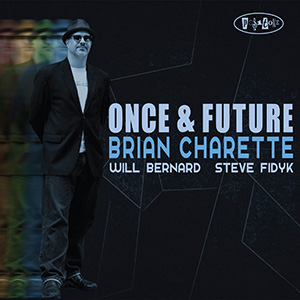
An irrepressibly swinging guitarist who is also given to blues-soaked phrasing, Ed Cherry is in that lineage of classic organ group six-stringers that includes Pat Martino, George Benson, Grant Green and Wes Montgomery. One can even hear strains of Charlie Christian in his soulful solo on a swinging rendition of Kool & The Gang’s “Let The Music Take Your Mind,” which kicks off this winning trio outing featuring underrated organist Kyle Koehler and the wonderfully interactive drummer Anwar Marshall.
The musicians stroll through Jimmy Heath’s “A New Blue” in relaxed fashion, then apply a Latin tinge to Cherry’s buoyant boogaloo, “Rachel’s Step,” both of which showcase Koehler’s brilliant solo contributions.
The Latin flavor returns on an interpretation of Mal Waldron’s “Soul Eyes,” then the trio goes for the all-out burn on an uptempo rendition of Freddie Hubbard’s “Little Sunflower,” which has Cherry dipping into his Wes bag for some excellent octaves playing.
Highlights abound on this hand-in-glove organ trio outing. Cherry’s breezy “Little Girl Big Girl” has Koehler manipulating tones at the peak of his exhilarating solo in show-stopping fashion, while the guitarist opens his gently swinging rendition of Horace Silver’s gorgeous “Peace” with a beautiful unaccompanied intro before Marshall underscores with brushes and Koehler supplies velvety comping underneath.
Additionally, the trio delivers a whimsical take on John Coltrane’s “Central Park West” and a swinging rendition of Dave Brubeck’s “In Your Own Sweet Way” that gives everyone a solo and surprisingly morphs into a funky, Meters-inspired throwdown near the end. This Soul Tree yields some very tasty fruit indeed.
4 stars ★ ★ ★ ★
Bill Milkowski – Downbeat Magazine
 Dusted In Exile
Dusted In Exile